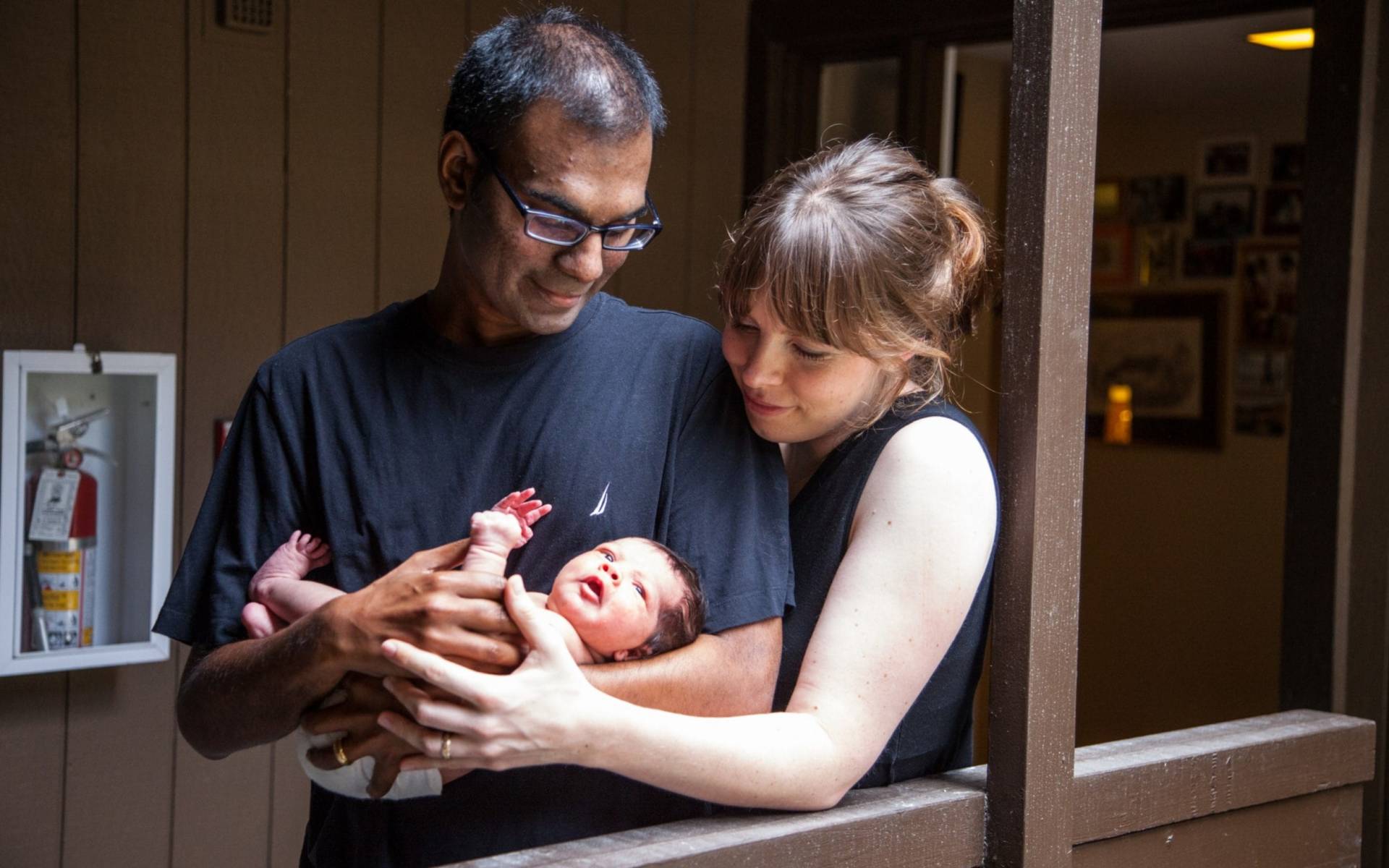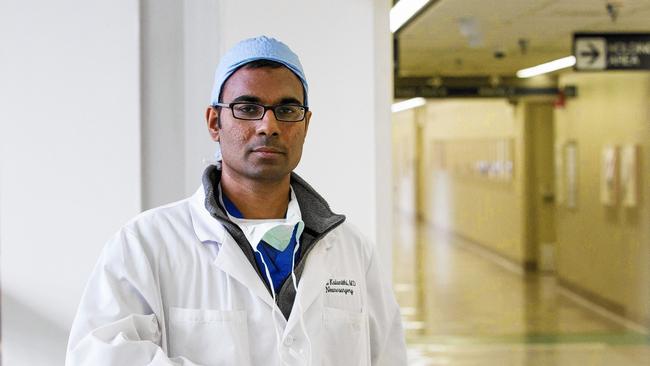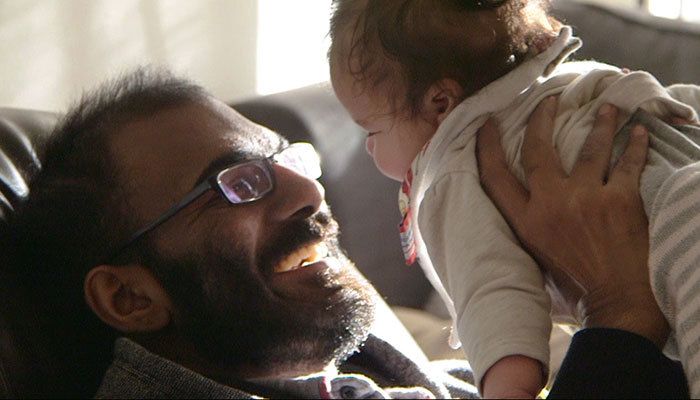Disclaimer*: The articles shared under 'Your Voice' section are sent to us by contributors and we neither confirm nor deny the authenticity of any facts stated below. Parhlo will not be liable for any false, inaccurate, inappropriate or incomplete information presented on the website. Read our disclaimer.
This article was originally submitted by Mubashra Ayub
“When you come to one of the many moments in life when you must give an account of yourself, provide a ledger of what you have been, and done, and meant to the world, do not, I pray, discount that you filled a dying man’s days with a sated joy, a joy unknown to me in all my prior years, a joy that does not hunger for more and more, but rests, satisfied. In this time, right now, that is an enormous thing.”
These are Paul Kalinithi’s final words in his memoir “When Breath Becomes Air” that he wrote before his death.
A death occurring from stage IV lung cancer on March 9, 2015, at the age of thirty-six. These words were for her eight months daughter, Cady, to let her know what her father wanted to say to her before cancer took his life out of the blue.
I don’t read cancer stories, the primary reason being they’re too distressing and it usually takes a lot of time after their completion to return to normal life of thoughts from the darkness of death and pain. But this book, which I already regret not having read earlier, was beyond my fears and reluctance.

The Telegraph
The book originally came out in January 2016 after Paul’s death.
Perhaps it is too late to write about Paul and his book now; since it’s been almost four years Paul’s tragically unexpected death took place and this memoir came out. But in this very day and the present circumstances, things being what they have become, I felt the urge to write about this book; about its magnanimous writer and why the present-day generation needs to read it and get inspired.
Apparently, this book is incomplete. The epilogue by Lucy Kalinithi, Paul’s wife, confirms this fact. But despite being its incompletion, it is wholesome and profound and the reader is compelled to think that it’s a complete book; one that covers every human and worldly aspect, from life to death, from being a subject to being an object, from a doctor to a patient, from the coldness of a sturdy profession to the warmth of empathy.
The book is a journey of a common man who, deep inside, was continuously struggling to understand the meaning of human life, their forged relationship with pain and suffering and their experiences through death.

The Wire
Paul was a literature lover as well, as is apparent from the various metaphorical contexts given in the book, mostly from classics.
He held degrees in English literature and other fields of science and philosophy as well. But his hunt for the answers about human existence and meaning of life, that books failed to give him, took him to a point where he went for medicine and got into Yale School of Medicine. He knew what he wanted- a direct experience of biological philosophy through the battling of life and death. As he quotes in his book himself:
“I had started in this career, in part, to pursue death: to grasp it, uncloak it and see it eye-to-eye, unblinking.”
His book revolves around all the years he spent in the profession of neurosurgery, where he treated hundreds of patients whose stories he spoke briefly about in his book. Later, he thrived as a neuroscientist as well, working in Stanford lab to help in the development of neural prosthetic technology.
His six years in residency, he encountered death many a time through his patients, where he saw some recovering back to life.
And others, failing this war and going into the dark pothole of death. But amidst all this fight between life and death, he was mindful of the fact not to let go off his empathy for his patients.

Yahoo News
His choice of words while breaking the ultimate bad news to his patients and their families; his ways of getting the patients comfortable with their terminal illness; and his ability to mentally cope with them are some of the things that undoubtedly make him one of the most competent and empathetic surgeons of this decade.
And while he was already planning the future life that lay ahead, with him receiving a million dollars for his post as a neurosurgeon and a neuroscientist; a life full of happiness and felicity with his wife Lucy, he was diagnosed with a stage III lung cancer; a cancer that shattered his dreams and left him in trance, but he was in a way ready.
“When Breath Becomes Air” is a hallmark of bravery and true heroism that doesn’t show the typical “I will fight this disease and become healthy again” notion.
In fact, it reflects the courage it takes for a man like Paul Kalinithi (who was at his peak in his medical profession at the time when he fell a victim to lung cancer) to make peace with the fact that the thing he was looking for all these years through literature and neurosurgery was finally standing in front of him, in its majestic authority and supremacy i.e. death.

The teal diaries
And he didn’t run away from it. He confronted it with all the power he had, while at the same time working for his passion, that neurosurgery was. But soon it was his time, time to meet his boon companion, the death.
Furthermore, he embraced it with open arms, content and satisfied, knowing he found the meaning in his life through the empathy of his noble profession and the harmony of basic human emotions he found through his patients, his wife and his darling daughter.
If you’re a doctor, surgeon or a medical student or you belong to any field of science, medicine or even literature; if you’re also suffering from this cross-questioning between life and death and what makes these two eternities so interconnected; and you haven’t read this book yet you are definitely missing something worthwhile.
Paul Kalinithi was a man to be remembered. In literature, in medicine, in neurosurgery, in neuroscience and in every heart that is battling death and its epitome; cancer.







